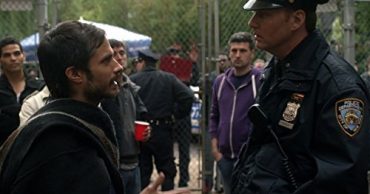
Victor Hugo’s iconic novel ‘Les Miserables’ was first published in 1862. Since then, there have already been stage and film adaptations of this novel, both of which have received great critical acclaim. Now a company called Elephant is planning to pitch a modernized version of the novel for television.
Elephant is a collective of creative professionals from various aspects of the entertainment industry, including digital, television, and film. This Paris-based collective will pitch their idea at Canneseries in the ‘In Development’ section. They will also pitch it at MipTV. This new adaptation is set to become the first French adaptation of the novel in over two decades.
When Hugo’s novel was first published, it was considered a revelation. There have been almost countless adaptations since. However, a television series based on the plot is a new idea and one that executive producer Renouil thinks a series perfect way to expand on the philosophies of Hugo. He does not feel that this has been fully achieved in television or on stage due to time constraints.
When speaking to Variety, Renouil said that previous adaptations have predominantly focused on the story of Valjean and this characters redemption and destiny. Renouil argues that there is so much more to the novel than just this one thread. By creating a television series, he believes that it will allowproducers to delve more into the other characters and for viewers to see things from a different perspective.
As the storyline spans 20 years, there is a lot of ground that the producers can potentially cover in a series format. Some characters that it is likely they will take a closer look at may include Marius, Thernadier, Fantine, Gavroche, Cosette, and Javert.
The television series adaptation has been co-written by Marc Herpoux, Sheila O’Connor, and Jean-Xavier de Lestrade. Their version of Hugo’s novel will cover events in the later part of the 20th century and early 21st century. This means that the storyline is set in much more modern surroundings and will have a contemporary take on the original plot.
Despite many clear differences in terms of the era in which the story takes place, Renouil says there is also a lot that remains the same. He gives a variety of examples of this, such as the general suffering experienced by those in the storyline and the position of children and women is still difficult despite having a different timeline. He also argues that exclusion and poverty are still everywhere around us.
However, using a different timeline has called for many changes from the original storyline, despite it having many of the same themes running through its storyline. For example, in the novel, Fantine is a factory girl. A modern televised version will see her juggling several low-paid jobs, including working as a waitress, a maid, and a telephone operator. Similarly, Valjean has a different career path as he is managing a chain of high-end hotels.
The most significant difference, though, is that the latter part of Hugo’s book focused on the 1832 Paris June Rebellion. Clearly, this is not relevant in a modern era, but it is an issue that Renouil has addressed. There are still riots in Paris, so this is something that will feature in the new storylines.
Elephant is now looking for other professionals to get onboard with this project. They are trying to secure broadcasters and co-producers for the series. As this project is in its early stages of development, they are very open to ideas and are willing to consider a variety of partners.
 Follow Us
Follow Us





